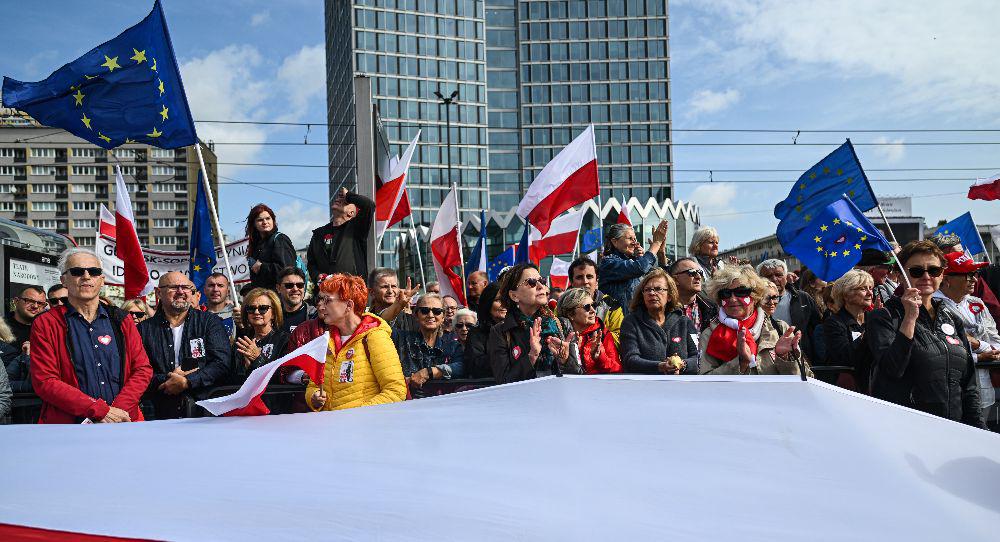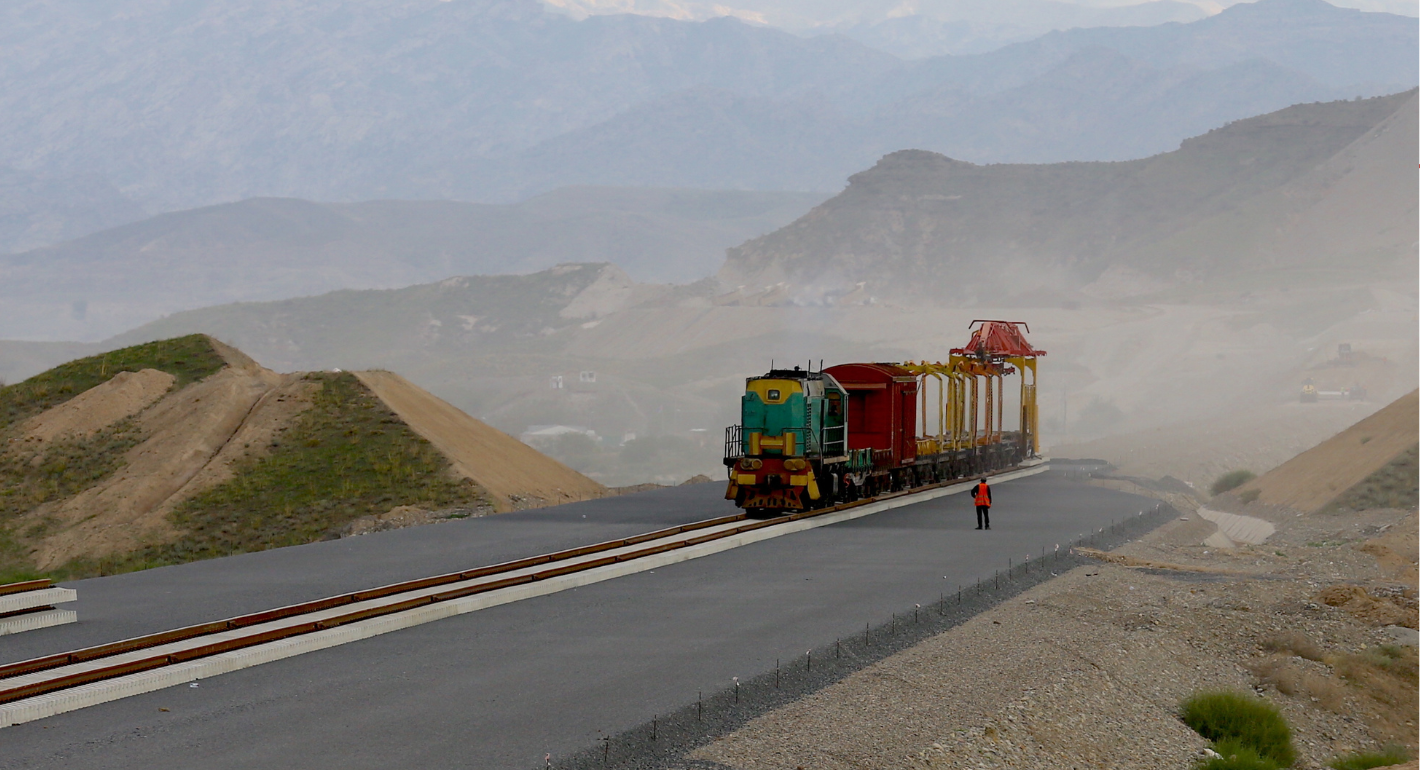They are called the Freedom Games.
This annual event in the bustling Polish city of Łódź brings together historians and artists, writers and filmmakers, journalists and academics.
This year, the venue was packed with young people—and some older ones. Outside the conference halls, they had set up brightly colored stands decked with posters and leaflets. They had come to campaign for democracy. For change. For a new beginning.
“This election is so important for us,” said Kasia Witek, 47. Witek is a member of the Committee for the Defense of Democracy (KOD), a Polish civic organization. “I want Poland to remain a democracy. I want it to stay in the EU. I want Poland to be a country that I want to live in. As a woman, I don’t feel safe anymore.”
Witek and other women I spoke to said they dreaded the idea of the governing conservative, nationalist Law and Justice Party (PiS) winning again at the upcoming election on October 15.
In power since 2015, PiS has systematically chiseled away at the democratic institutions and civil rights established after 1990. If it wins again, PiS leader Jaroslaw Kaczyński has vowed to complete what he called the “reform” of the judicial system. It would leave Poland without a structure of checks and balances in ways that would fundamentally undermine democracy. Women at the Freedom Games said a PiS victory would make them more vulnerable.
“PiS has trampled on women’s rights,” said Agnieszka Czastuowska, 42. She was referring to the stringent anti-abortion laws that PiS has introduced.
“I want to feel secure in my country,” said Czastuowska, who had set up a stand promoting vegan and animal rights. “I just don’t want to be repeatedly judged for the things I do or believe in,” she added.
“Many young women, if they are pregnant and want an abortion, often seem powerless. There are cases where they die in hospital. Doctors are in a very difficult situation because they too are afraid,” she added. “We must have change,” said Czastuowska.
Civil society movements persist in their efforts to reverse Poland’s drift away from democracy—despite PiS’s increasing control over the state-broadcasting television channels and its tightening grip over the judicial system, military, police, civil service, education, and security services.
“We go to the towns and villages to explain why democracy is so important, why we need independent judges, why we need the rule of law,” said Adam August, a political science student.
Over the past several months he and his colleagues have visited at least 100 towns throughout the country. They focus on explaining to young people what democracy means. “We meet in parks or in village squares. It’s about making civil society matter,” he said.
There was no lack of civil society at the Freedom Games. The overarching message from these activists was the urgency of protecting Polish democracy. If this is not done, Poland’s transformation to a modern country based on the rule of law would be seriously undermined.
The consequences for the EU cannot be underestimated. A big country like Poland—the fifth largest in the union—could influence the direction of other countries. The victory of SMER, a euroskeptic and pro-Russian party won, in the recent Slovak election showed the fragility of centrist politics and the growing rise of nationalist and populist movements.
“Poland has not completely lost its freedom,” explained Mikolaj Walczak, a 22-year-old law student and member of the Łódź branch of the European Law Students’ Association. “We will lose it if we don’t work for it. I’m still hopeful for change. I wouldn’t be living here if I didn’t believe in that.”
Tell that to Piotr (41) and Max (20), Pawel (31), Alexandra (24), Oskar (19) and Erik (19). “Just before you came over to talk to us we were actually speaking about leaving the country,” said Piotr. “I want to live in a real liberal democracy that respects our dignity and human rights,” he added.
I asked them how PiS affected their lives.
“PiS has polarized our country.” Erik responded. “I want our country to be for us, not against us. The opposition which we support is demonized. As for the EU, we want to remain in it. But PiS is always criticizing Europe. It’s always portraying Poland as a victim,” he added.
Now that the EU is withholding billions of euros worth of the post-Covid recovery funds from Warsaw until PiS restores the independence of the judiciary, this sense of victimhood is being played out in the election campaign. PiS argues the EU wants to impose its own values on Poland and undermine the country’s sovereignty.
To the question of how PiS has affected his life in practical terms, Oskar replied: “What I don’t like is the nationalism and the role of the Catholic church.”
“It’s the way our values and human rights are being questioned,” said Alexandra. “Sometimes I think people don’t know what is happening to their civil rights. Or else maybe Poles overall don’t believe in their institutions. Our parents certainly didn’t believe in them during the communist times. Yet today, in our democracy the independence of the judges, for instance, is threatened so much. What does that do to trust in the institutions?”
When it comes to polling day, these six individuals all hope that the opposition grouped around Civil Platform will win. “This is about our country and about the EU. I don’t want Poland to leave the EU. There is no alternative to the EU,” said Pawel.
And if PiS is reelected? “Like we said, we are all thinking of leaving…” answered Pawel.











